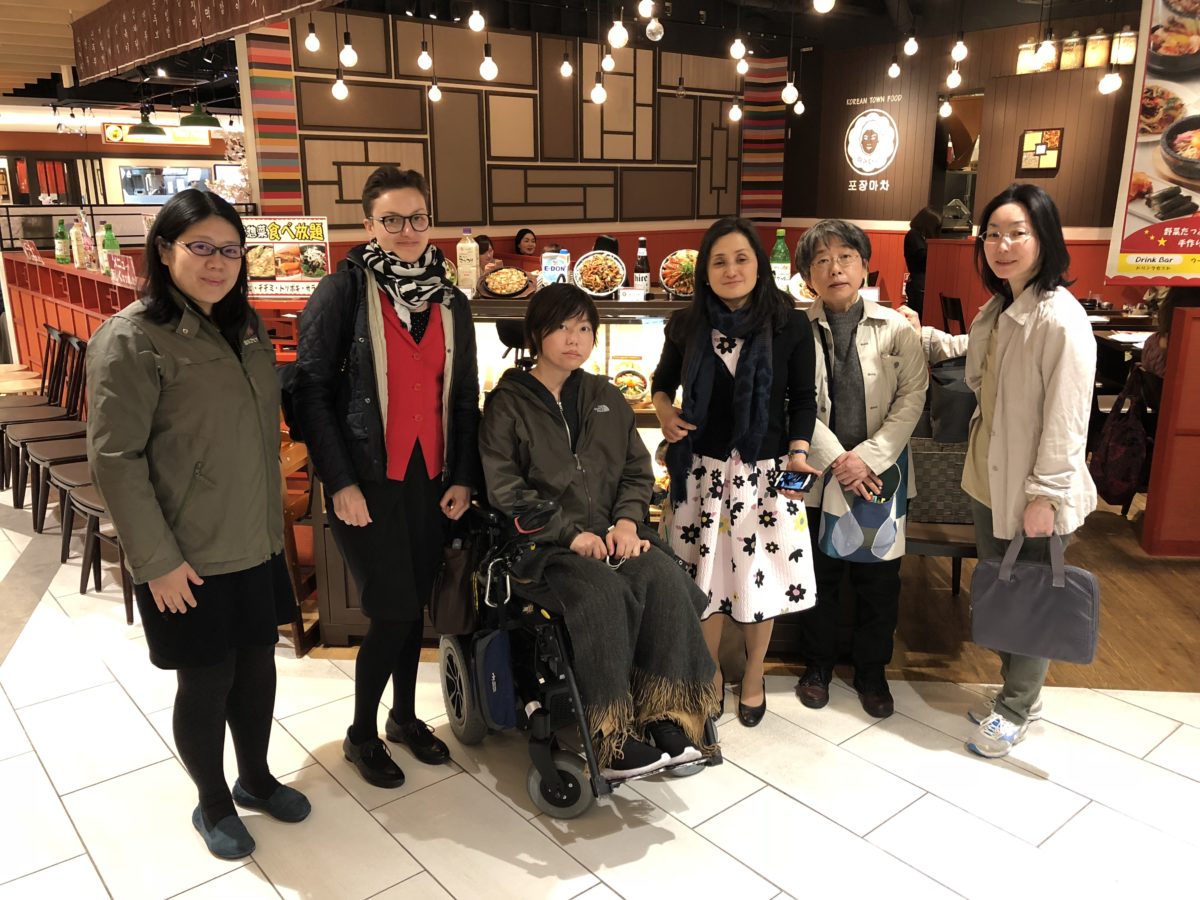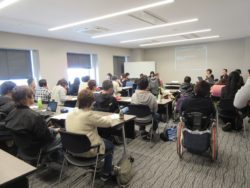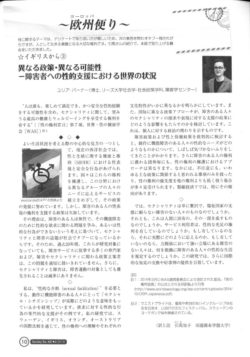Sexuality and Disability in Japan

In April Julia Bahner, postdoctoral research fellow in CDS, visited Japan to present her research and meet with disabled people’s organisations and academics. The trip was arranged by Tomoko Hikuma from Den-en Chofu University, who recently returned to Japan after spending 6 months in Leeds at the Centre for Disability Studies, as a visiting researcher. In this blog Julia provides a short report on her visit.
[Description of photo above: Six women in front of a Korean restaurant, facing the camera: Hitomi Nagano (Associate Professor at Sophia University), Julia Bahner, Toshiko Kudo (Step Edogawa), Tomoko Hikuma, Kumiko Usui and Kyoko Hamasima (both from DPI-Japan)]
On the 10th of April in Tokyo Metropolitan University, I presented preliminary findings from my ongoing research project Sexual Citizenship and Disability. Participants were students, researchers and representatives from disabled people’s organisations including DPI’s Women’s Network (Japan National Assembly of Disabled People’s International), Step Edogawa, a Centre for Independent Living in Tokyo and Noir, a sexuality and disability non-profit organisation. After the talk, participants shared their experiences from different types of work on sexuality and disability issues. It was a great opportunity to compare policies and practices between Japan and other societies and to discuss cultural and political influences in these contexts. For instance, the Japanese disabled women’s movement is currently fighting for compensation to victims of forced sterilizations. Parts of the group went out to dinner afterwards.
On the 13th of April at Aichi University in Nagoya, a seminar about disabled women and sexuality was arranged in collaboration between Professor Hikuma and Associate Professor You Tsuchiya, who leads a research project about disabled women’s difficulties in different spheres of life.

Photo taken from the back of the seminar room. The audience is seen from behind, sitting in rows. Julia and You are sitting behind a table at the front, facing the audience. To their left on the wall is Julia’s power point presentation in Japanese.
I presented the parts of my research that relate to women, with special focus on disabled women’s organisations’ advocacy work, peer support, and sex education projects. Then, Naoko Kawaguchi, visiting researcher at Ritsumeikan University, presented results from the Japanese study led by Ass.Prof. Tsuchiya on ‘Difficulty in living of disabled women related to love, marriage and reproduction’. Disabled women from different parts of Japan attended the seminar, and once again, I had a great exchange of thoughts and experiences with the participants.
Tomoko had also translated a short article that I had written about my research. This appeared in the latest issue of the Japan Council on Disability’s 'Society for All' member's journal.

An image of the journal page with Julia’s article. There is a photo of Julia and another photo depicting the wheelchair symbol inside a trans symbol, against a rainbow coloured background (from the Swedish organisation Gothenburg Youth with Mobility Impairments)
